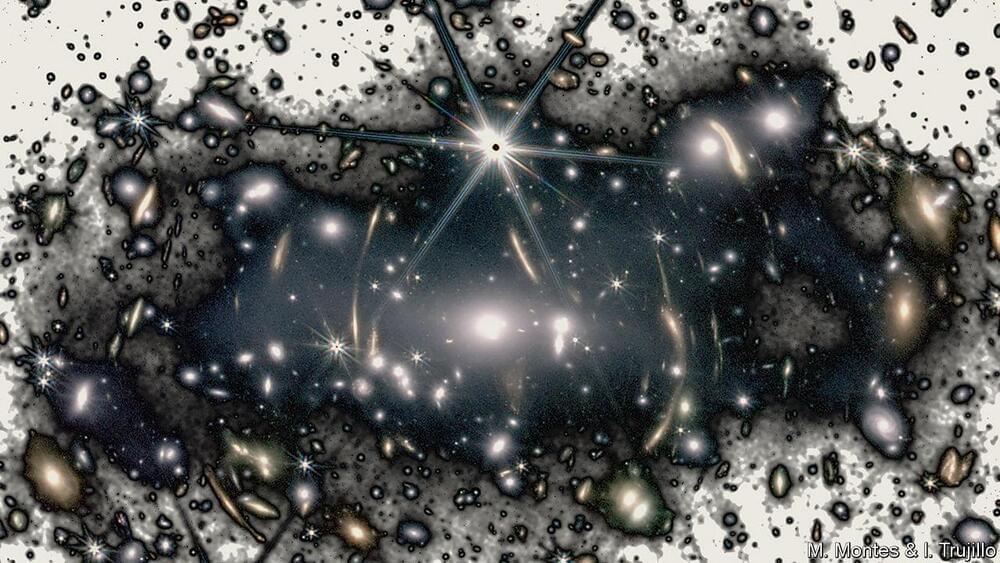Dr Freese has also made the case for a Dark Big Bang that could have given rise to dark matter independently of normal matter in the days after the Big Bang. The traditional model of the universe says that matter and dark matter were produced at the same time. The earliest evidence of dark matter, however, only appears later in the early evolution of the universe, when cosmic structure starts to form.
One explanation for this is that matter and dark matter did not, in fact, appear together, but that dark matter entered the universe in a second cataclysmic release of energy from the vacuum—the Dark Big Bang—as much as a month after the traditional Big Bang. The model that Dr Freese and her co-author Martin Winkler explored would explain why dark matter might be completely decoupled from traditional matter and it also naturally produces SIDM candidates. If there was such a Dark Big Bang, it would have left a clear signature—a pattern in the frequencies of the gravitational waves that hum across the universe—that could be picked up by future gravitational-wave detectors.
